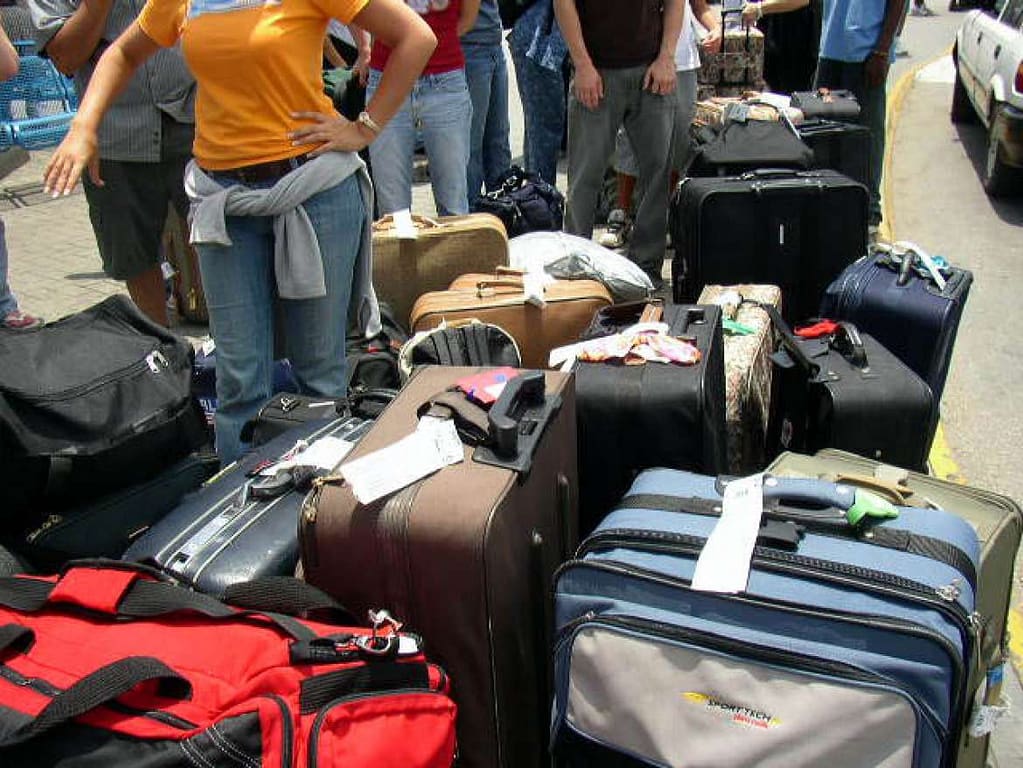The airlines are increasing their baggage-checking fees even again. Nevertheless, the exact amount will be determined by when you actually spend on the service.
Several airlines, including the likes of United Airlines, the American Airlines, and JetBlue Airways, have boosted baggage fees this year. Each of these charges consumers extra if they check out their luggage at airports or close to departure than if they check their luggage online ahead of time.
Carriers are urging consumers to pay for inspecting their luggage before taking off. Arguing that this would free up personnel at checking-in desks and get passengers through the gates quicker.
A few days ago, American carriers hiked its checked bag costs for the very first time in the past five years. Adopting the same two-tiered model as United, JetBlue, and numerous budget carriers.
Customers flying with American Airlines in coach will be charged $35 for checking the first luggage for domestic routes if they reserve the service online in advance, or $40 if they buy it at the departure gate, the travel company said Tuesday. American Airlines had previously asked $30 for each service.
Several exceptions. Customers using a particular airline or additional reward credit cards, traveling in an business class. With elite regular flier status may usually check at least a single bag for free on domestic or shorter international trips.
Why is it cheaper to check a suitcase in advance?
“It helps our staff members to dedicate more time interacting with consumers who need extra support during their travel route.”

Recently, American also announced that it would reduce penalties for slightly overweight baggage. Which previously required some travelers to take out things from their luggage at the airport in order to reach the criteria.
The several charge levels are an approach that ultra-low-cost carriers have previously used to baggage costs.
“It encourages consumers to complete the purchase quickly. Frontier Airlines CEO Barry Biffle said that it is simpler for both the passengers and the company itself. “There are actual travelers who want attention” at the airport.
United began charging consumers extra to pay for checked baggage at airports in the year 2020. Around Friday, the airline said that it will raise bag costs by $5 for the majority of flights in North America to $35 if passengers prepaid online no later than 24 hours before their departure, or $40 if they otherwise begin with reservations made on February 24. Another checked baggage costs $50, or $45 if booked at least twenty-four hours in advance.
Why are airlines increasing baggage fees?
Baggage fees constitute a significant revenue source for airlines. According to the Transportation Department’s most recent statistics, US airlines collected more than $5.4 billion in fees for baggage. In the initial nine months of operation of 2023, an increase of over 25% over the same time in 2019.
Airways are claiming that they were forced to increase luggage fees due to rising labour and gasoline prices, which are their largest outlays.

JetBlue released a statement regarding its most recent hikes, saying, “Although we are opposed to raising fees. It’s the first step we have to take to get our company back to profitability and offset the higher expenses of transporting luggage.” “We can maintain low starting prices and guarantee that customer favorites like seatback TVs and fast Wi-Fi stay free to all passengers by adjusting fees for additional amenities that only some customers utilize.”
A standout among the major American airlines is Southwest Airlines. Customers are able to have two bags checked for charge. According to Chief Operating Officer Andrew Watterson.
“It doesn’t cost us $35 or $40 to handle a bag,” Watterson explained in a conversation. Many passengers on top airlines take carry-on bags in order to prevent bag costs. But Watterson said it might slow down operations. Which is significant for Southwest, which aims to turn its aircraft around for the next trip in forty-five minutes, or less on certain of its smaller Boeing jets.
It makes the business go more smoothly when people check it rather than turn it on, he added. “Ultimately, we believe the advantage is a mix of certain efficiency and clients returning to us. Repeat customer business cannot be stressed. And when you serve your consumers properly and provide them with fair regulations, they come back.

